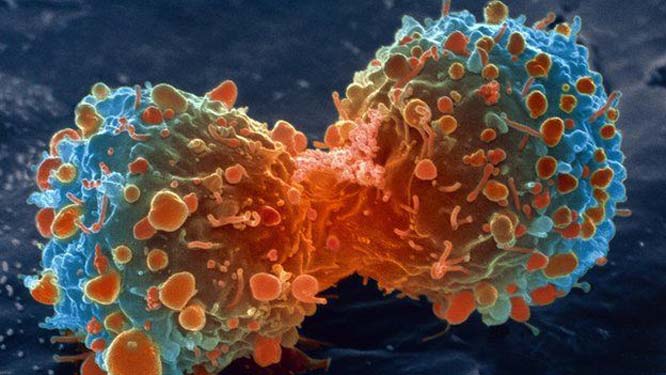
Known as CAR-T therapy, the Novartis treatment is the first of several such drugs under development or review. The U.S. Food and Drug Administration announced the approval, weeks ahead of schedule.
"We're entering a new frontier in medical innovation with the ability to reprogram a patient's own cells to attack a deadly cancer," FDA Commissioner Scott Gottlieb said in a statement. "New technologies such as gene and cell therapies hold out the potential to transform medicine and create an inflection point in our ability to treat and even cure many intractable illnesses."
The treatment will be sold under the name Kymriah, and is approved for children and young adults up to age 25 with cancers that don't respond to traditional treatment, or who are suffering from a second relapse, a broad indication that will give more patients access to the novel technology.
About 3,100 Americans ages 20 and younger are diagnosed with acute lymphoblastic leukemia each year, and 15 to 20 percent of them don't respond to the initial treatment or have their disease return, according to the National Cancer Institute.
With the treatments available now, fewer than 10 percent of patients with the relapsed, hard-to-treat leukemia are alive five years after diagnosis. In a trial of Kymriah, 83 percent of 63 patients with hard-to-treat disease were in remission within three months, according to Novartis.
The approval of Novartis' CAR-T therapy comes just two days after Gilead Sciences Inc. announced an agreement to spend $11.9 billion and buy Kite Pharma Inc., which is developing its own CAR-T therapy scheduled for an FDA ruling by Nov. 29.
"We've never seen anything like this before," said Stephan Grupp, director of the cancer immunotherapy frontier program at Children's Hospital of Philadelphia, the first medical center to study Kymriah in children. "I believe this therapy may become the new standard of care for this patient population."
A spokeswoman for Switzerland-based Novartis declined to say how much the drug will cost, though analysts have estimated a price of $500,000 or more. The company did say that it's made an agreement with the U.S. government to pay for the drug only when pediatric or young adult patients with the cancer respond to treatment by the end of their first month.
That agreement could have implications for other drugmakers developing expensive, specialized treatments, such as one-time therapies meant to cure rare genetic diseases. Novartis said its working on similar agreements with other payers.
Kymriah will carry a boxed warning because of the treatment's potential to cause deadly side effects, including neurological complications and what's known as cytokine release syndrome, a systemic reaction triggered by the destruction of the cancer cells. The FDA also approved Roche Holding AG's Actemra to treat patients with cytokine release syndrome, pointing to research that shows 69 percent of patients suffering from it improved completely after one or two doses.


 Contact The Editor
Contact The Editor
 Articles By This Author
Articles By This Author
